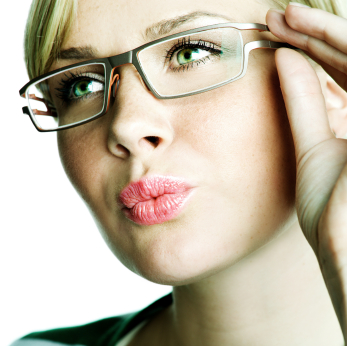Photochromic. Photochromic lenses are chemically treated so that they automatically adjust to brightness. They get sunglass-dark in direct sunlight and clear in a dimly lit room. They can screen out up to 85 percent of light at their darkest and 10 percent to 15 percent at their lightest.
 |
| Glasses That Improve Vision |
Some cautions about photochromic lenses: These lenses require UV light to change color, so they won't get dark while you're driving unless the sun is shining on your face through an open window. You may need to keep a pair of sunglasses in the car. Plastic don't change color as quickly or get as dark as treated glass lenses. And neither type of lens changes color as quickly or gets as dark in high temperatures.












